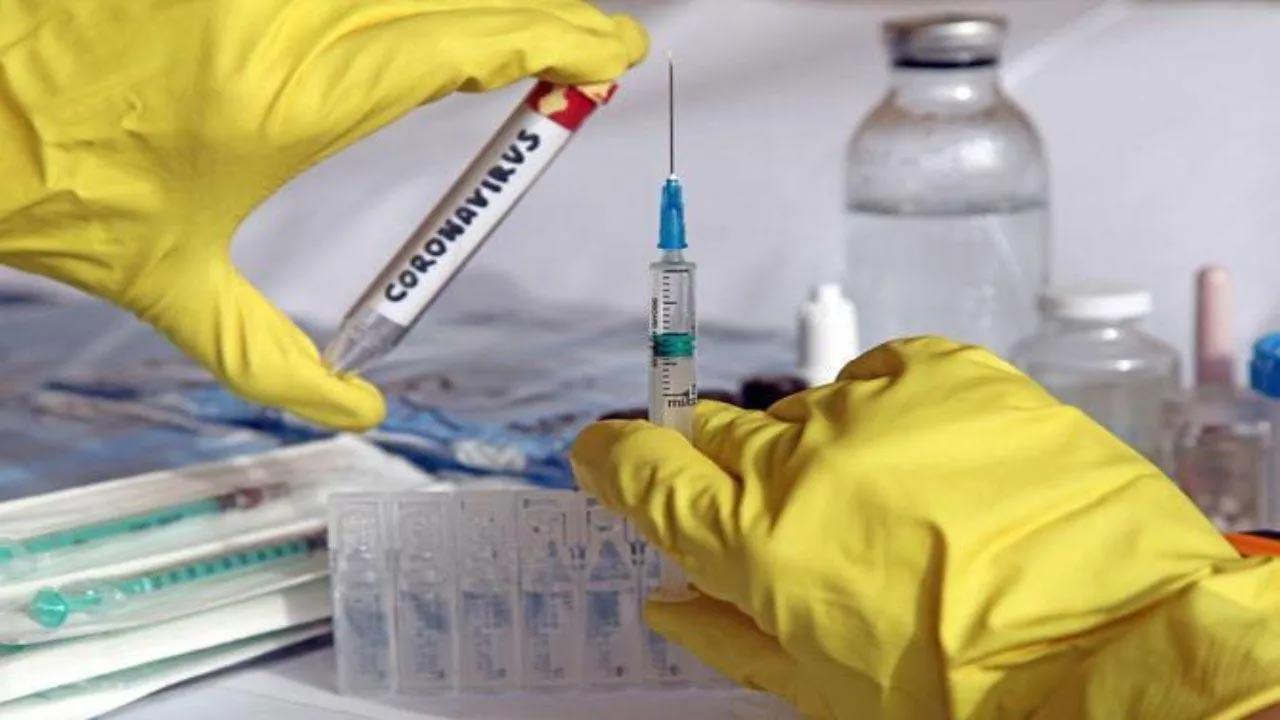It's unclear where the new variant first emerged, but scientists in South Africa alerted the World Health Organization in recent days, and it has now been seen in travelers arriving in several countries, from Australia to Israel to the Netherlands

Photo for representational purpose
South African scientists identified a new version of the coronavirus that they say is behind a recent spike in Covid-19 infections in Gauteng, the country's most populous province.
It's unclear where the new variant first emerged, but scientists in South Africa alerted the World Health Organization in recent days, and it has now been seen in travelers arriving in several countries, from Australia to Israel to the Netherlands.
On Friday, the WHO designated it as a "variant of concern," naming it "omicron" after a letter in the Greek alphabet.
What do we know about omicron?
Health Minister Joe Phaahla said the variant was linked to an "exponential rise" of cases in the last few days. From just over 200 new confirmed cases per day in recent weeks, South Africa saw the number of new daily cases rocket to more than 3,200 Saturday, most in Gauteng. Struggling to explain the sudden rise in cases, scientists studied virus samples and discovered the new variant. Now, as many as 90 per cent of the new cases in Gauteng are caused by it, according to Tulio de Oliveira, director of the KwaZulu-Natal Research Innovation and Sequencing Platform.
Why are scientists worried about this new variant?
After convening a group of experts to assess the data, the WHO said that "preliminary evidence suggests an increased risk of reinfection with this variant," as compared to other variants. That means people who contracted Covid-19 and recovered could be subject to catching it again.
The variant appears to have a high number of mutations " about 30 " in the coronavirus' spike protein, which could affect how easily it spreads to people. Sharon Peacock, who has led genetic sequencing of Covid-19 in Britain at the University of Cambridge, said the data so far suggest the new variant has mutations "consistent with enhanced transmissibility," but said that "the significance of many of the mutations is still not known."
Lawrence Young, a virologist at the University of Warwick, described omicron as "the most heavily mutated version of the virus we have seen," including potentially worrying changes never before seen all in the same virus.
What's known and not known about the variant?
Scientists know that omicron is genetically distinct from previous variants including the beta and delta variants, but do not know if these genetic changes make it any more transmissible or dangerous. So far, there is no indication the variant causes more severe disease.
It will likely take weeks to sort out if omicron is more infectious and if vaccines are still effective against it. Peter Openshaw, a professor of experimental medicine at Imperial College London said it was "extremely unlikely" that current vaccines wouldn't work, noting they are effective against numerous other variants.
Even though some of the genetic changes in omicron appear worrying, it's still unclear if they will pose a public health threat. Some previous variants, like the beta variant, initially alarmed scientists but didn't end up spreading very far.
"We don't know if this new variant could get a toehold in regions where delta is," said Peacock of the University of Cambridge. "The jury is out on how well this variant will do where there are other variants circulating." To date, delta is by far the most predominant form of Covid-19, accounting for more than 99 per cent of sequences submitted to the world's biggest public database.
How did this new variant arise?
The coronavirus mutates as it spreads and many new variants, including those with worrying genetic changes, often just die out. Scientists monitor Covid-19 sequences for mutations that could make the disease more transmissible or deadly, but they cannot determine that simply by looking at the virus.
Peacock said the variant "may have evolved in someone who was infected but could then not clear the virus, giving the virus the chance to genetically evolve," in a scenario similar to how experts think the alpha variant " which was first identified in England " also emerged, by mutating in an immune-compromised person.
Are the travel restrictions being imposed by some countries justified?
Maybe. Israel is banning foreigners from entering the country and Morocco has stopped all incoming international air travel. Dr Matshidiso Moeti, WHO's regional director for Africa, commended South Africa and Botswana for quickly informing the world about the new variant. "With the omicron variant now detected in several regions of the world, putting in place travel bans that target Africa attacks global solidarity," Moeti said. "Covid-19 constantly exploits our divisions. We will only get the better of the virus if we work together for solutions."
Also Read: Omicron fear prompts strict action against Mumbai’s maskless
This story has been sourced from a third party syndicated feed, agencies. Mid-day accepts no responsibility or liability for its dependability, trustworthiness, reliability and data of the text. Mid-day management/mid-day.com reserves the sole right to alter, delete or remove (without notice) the content in its absolute discretion for any reason whatsoever
 Subscribe today by clicking the link and stay updated with the latest news!" Click here!
Subscribe today by clicking the link and stay updated with the latest news!" Click here!










